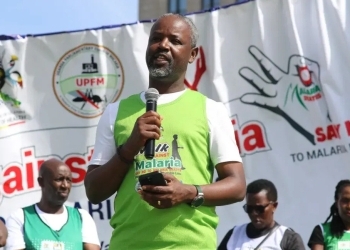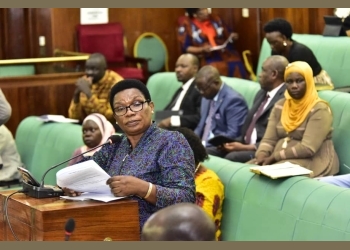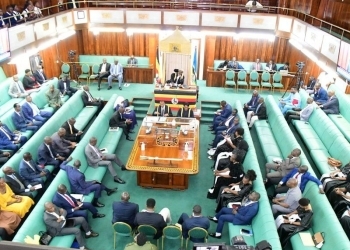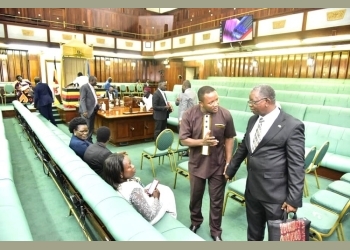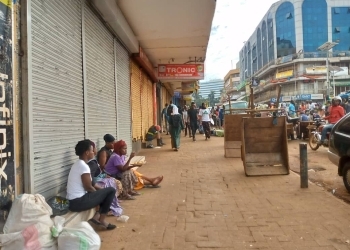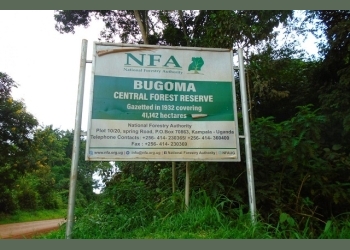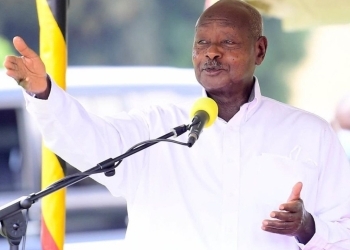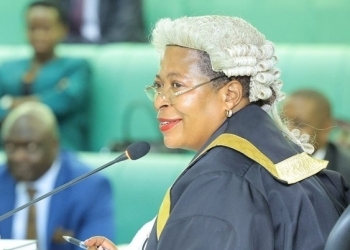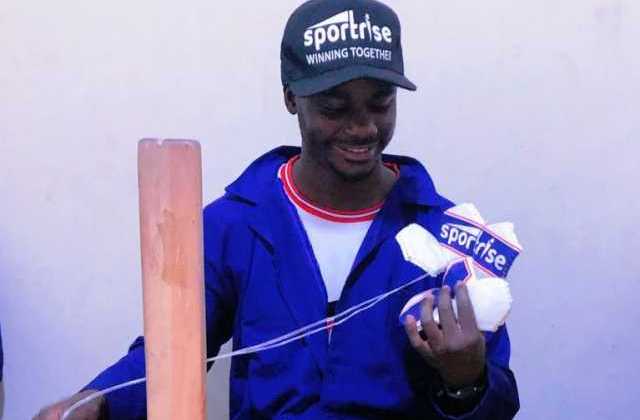
Douglas Smith is an ardent lover of sports. The amor dates back to when the gentleman was young, barely aged enough to go to school. Every chance he got to play, it was football; soccer as some may like to call it. Fast forward, Smith has taken his love even further to play football for several clubs.
For the years he played, Smith always used balls made out of banana fibers because he could not afford those on the market.
‘Ehihajo’, they called them. ‘Ehihajo’ was the runyankole word used to mean expensive ball.
What flustered him was that despite the fact that the balls were imported, they were not durable, and yet cost an arm and a leg to buy.
So for the past three years, Smith, who runs a not for profit organisation called ‘The Smith Soccer Foundation’ which uses the power of soccer to bring about a positive social impact in communities, embarked on research that would later see him make his own soccer balls out of recycled plastic.
“Most of the soccer balls used in Uganda are imported. There hasn’t been any football manufacturing company in Uganda. Most of the imported soccer balls are very expensive and not durable. Also I came to find out that in Uganda over 2000 metric tons of waste is generated of which around 30% is plastic. After doing intensive research and studies, I came up with the idea of manufacturing soccer balls locally from recycled plastic waste,” he reveals, never mind that he was pursuing a diploma in medical laboratory technology.
Sportrise is born
At the dawn of 2020, Sportrise was born. Sportrise is a social enterprise company in Ibanda locally manufacturing durable and affordable soccer balls from recycled plastic waste.
Smith’s raw material is Polyethylene Terephthalate (PETE) which is the commonest type of plastic in Uganda as it is derived from disposable plastic water and soda bottles.
It takes around 100 plastic bottles to make one ball.
“We have up to 10 plastic collection centres in Ibanda. We employ some young people that do the collections. We are currently innovating a digital way of encouraging young people to earn as they collect and drop plastic at our collection centres,” he narrates.
At Sportrise, Smith employs 27 people directly and indirectly including those that collect the plastic for recycling.
In one year, the 27 year old has earned about UGX12million from selling soccer balls and sportswear.
“We have made UGX12 million in sales from both Sportrise balls and Sportrise wear since May 2020 and have so far raised UGX120 million in seed funding. Whereas currently our sport wear is made of fabric, we are presently undertaking research on the feasibility of manufacturing sportswear (sportrise wear-- including jerseys and footwear) from recycled plastic waste,” he says.
Currently an ordinary Sportrise ball goes for UGX40,000 and UGX50,000 for those that are customized.
Whereas Sportrise clientele are predominantly sports shops, local clubs, corporate companies, schools, individuals & politicians, the young lad from Mirambi Cell, Ibanda District has now embarked on partnering with football clubs to grow his sales.
“Last year we signed a Memorandum of Understanding (MoU) with Ibanda Municipal SC 3rd division team as their official kit sponsor on a 2 year deal while they also play using our Sportrise balls. We plan to partner with many more clubs,” he explains.
Challenges
But being a first time business founder venturing in virgin territory of local football manufacturing, Smith has been faced with some challenges.
“Uganda has no football manufacturing plant where the team can benchmark to learn more about the ball making process. This calls for flying out of the country which is costly for a startup. Heavy reliance on imported products also limits acceptability of my local product,” he says.
Smith is skilled by MTN
Sportrise was the overall winner of the MTN ‘For Good Campaign’ having emerged victorious out of 100 participants that took part in 2020.
Owing to his victory, Smith was given a free pass to the MTN Foundation Youth Skilling Program (MYSP) which seeks to inspire and empower youth to become job creators through imparting financial and digital skills business knowledge. The MYSP, a partnership between MTN and Ubinufu systems hosts 100 participants trained in legal and taxation, computer essentials and technical skills among others.
Smith says; “The MTN Youth Skilling Program has really helped me a lot especially about financial management, record keeping, leadership etc. Being a first time founder, it was difficult running a startup company and leading my team but with the MTN Youth Skilling Program I now have over 80% of the skills. I think in the future I will strive not to make mistakes.”
As winner of the For Good Campaign, Smith was awarded 60GB for 6 months which he used to undertake more research and running his website. In addition, Smith says, the MTN ‘For Good campaign’ endorsement has enabled Sportrise to win several competitions and raise some money as well.
Nelson Munyanda, senior manager MTN Foundation says Sportrise is an example of a green company which falls in line with MTN’s environmental and social governance policy.
“It seeks to conserve the world through waste management which is a challenge for many in Uganda. At MYSP, the goal is to empower the youth to create ICT driven solutions to challenges in their community and I think Sportrise speaks to that,” he notes.
Like any other startup, Sportrise still faces some challenges which it will need to overcome before it can carry on with its ambition of scaling and competing on the global market.
